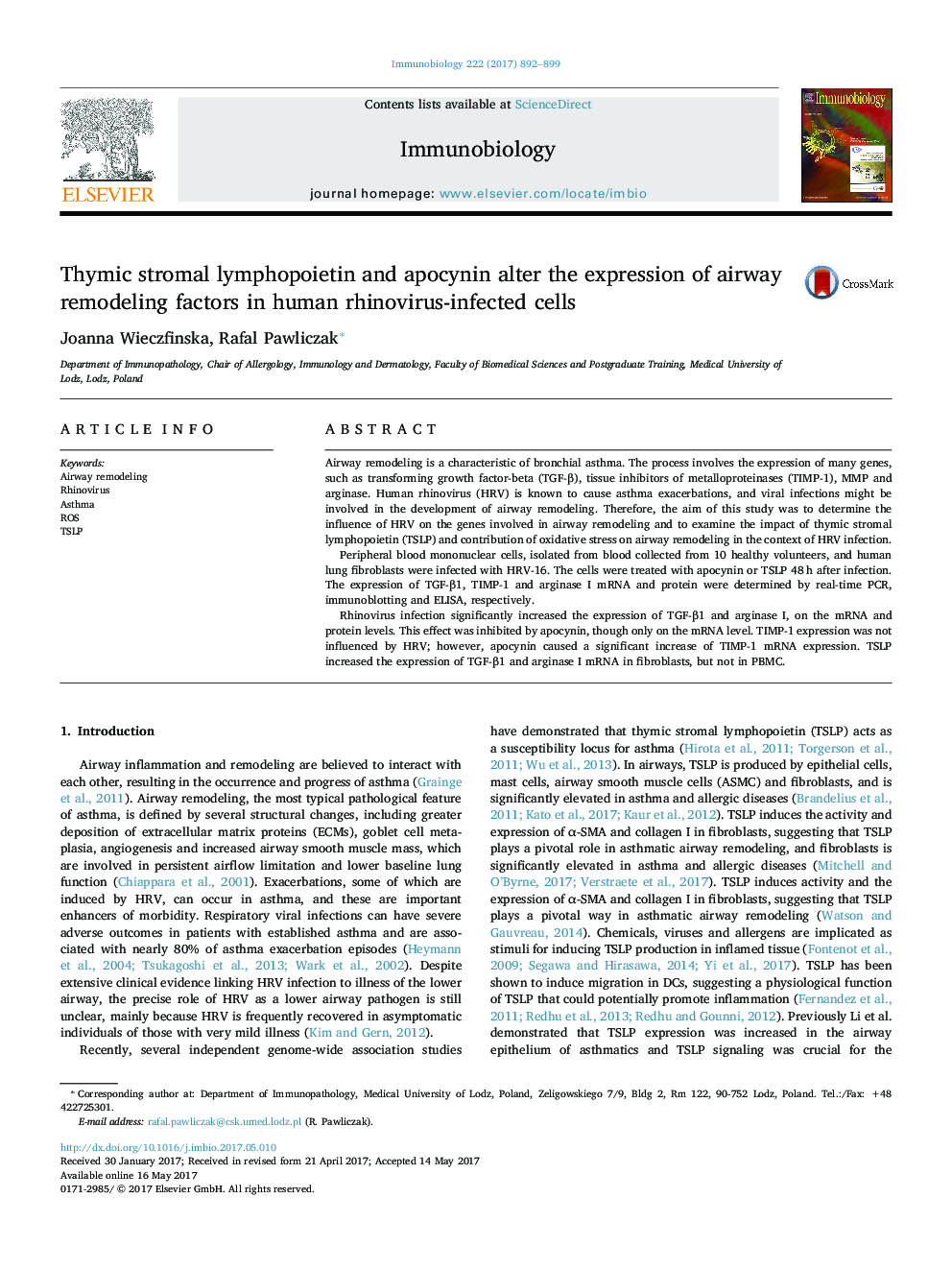| Article ID | Journal | Published Year | Pages | File Type |
|---|---|---|---|---|
| 5533160 | Immunobiology | 2017 | 8 Pages |
â¢Apocynin inhibits rhinovirus-induced TGF-β1 and arginase I expression.â¢TSLP increased expression of TGF-β1 and arginase I mRNA in fibroblasts, but not in PBMC.â¢Apocynin increased TIMP-1 mRNA expression but TSLP has no effect on TIMP-1 expression.
Airway remodeling is a characteristic of bronchial asthma. The process involves the expression of many genes, such as transforming growth factor-beta (TGF-β), tissue inhibitors of metalloproteinases (TIMP-1), MMP and arginase. Human rhinovirus (HRV) is known to cause asthma exacerbations, and viral infections might be involved in the development of airway remodeling. Therefore, the aim of this study was to determine the influence of HRV on the genes involved in airway remodeling and to examine the impact of thymic stromal lymphopoietin (TSLP) and contribution of oxidative stress on airway remodeling in the context of HRV infection.Peripheral blood mononuclear cells, isolated from blood collected from 10 healthy volunteers, and human lung fibroblasts were infected with HRV-16. The cells were treated with apocynin or TSLP 48 h after infection. The expression of TGF-β1, TIMP-1 and arginase I mRNA and protein were determined by real-time PCR, immunoblotting and ELISA, respectively.Rhinovirus infection significantly increased the expression of TGF-β1 and arginase I, on the mRNA and protein levels. This effect was inhibited by apocynin, though only on the mRNA level. TIMP-1 expression was not influenced by HRV; however, apocynin caused a significant increase of TIMP-1 mRNA expression. TSLP increased the expression of TGF-β1 and arginase I mRNA in fibroblasts, but not in PBMC.
